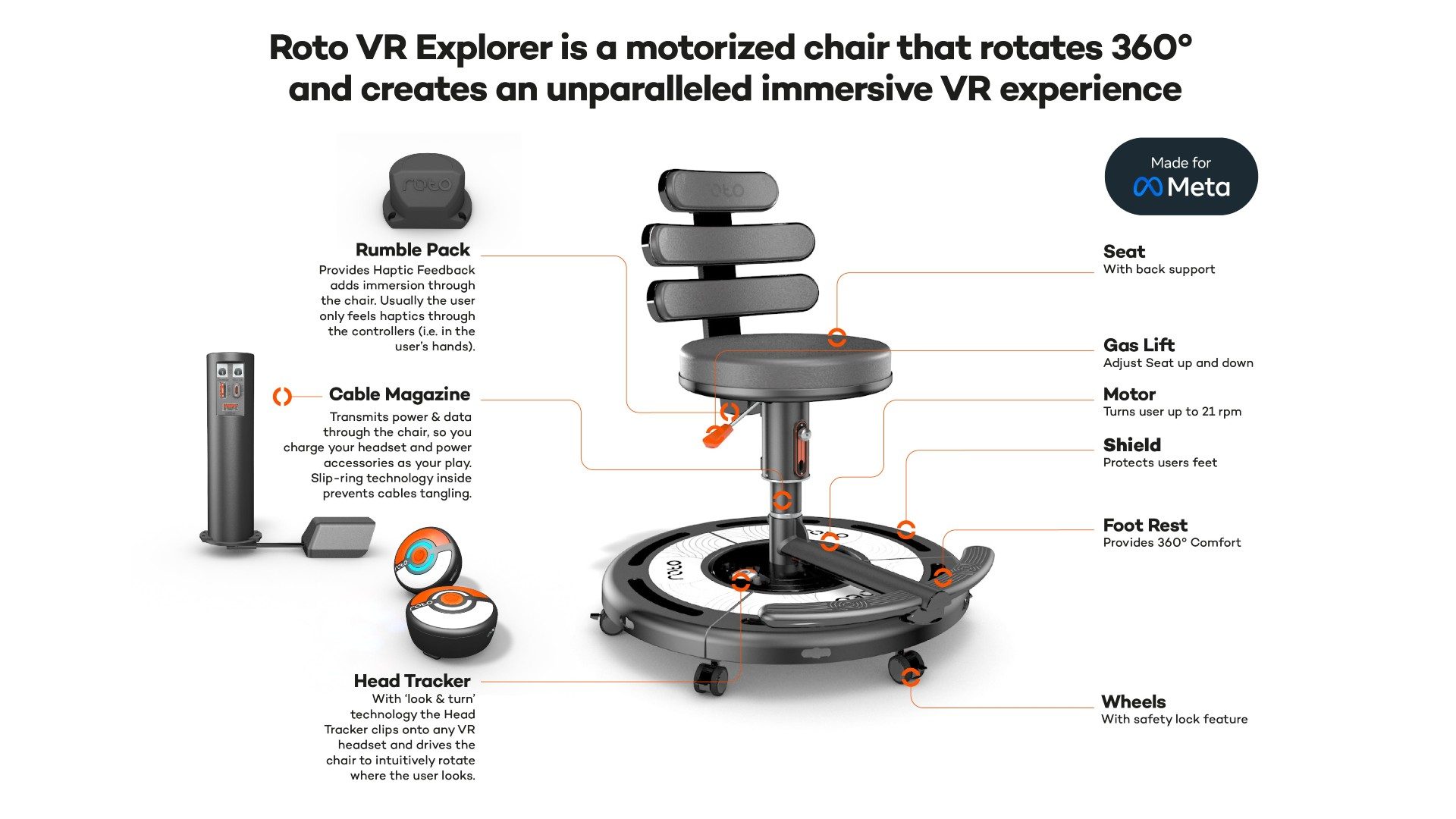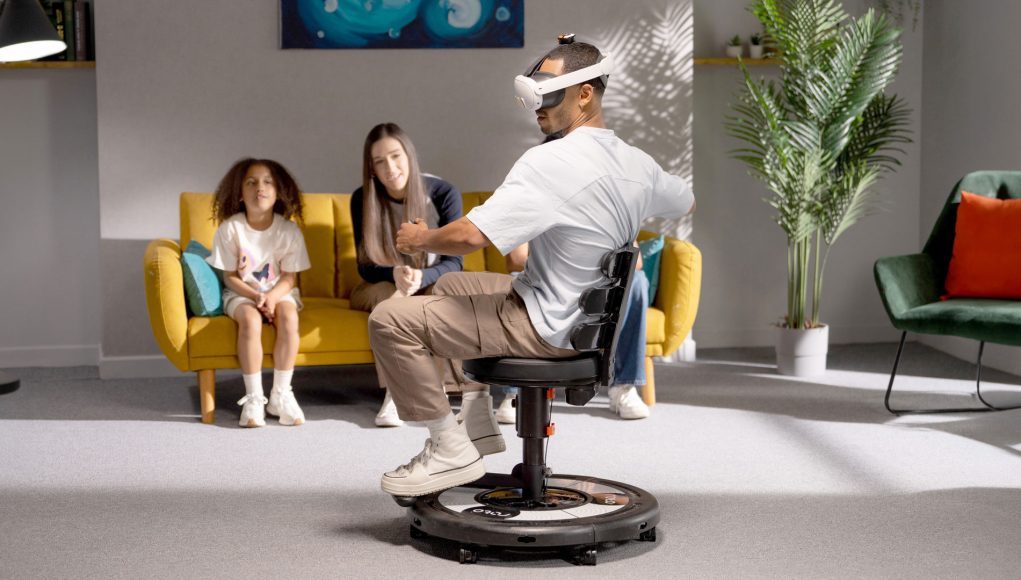Roto VR, the UK-based creator behind 360-degree VR chairs, announced a new funding round of £2.4 million (~$3 million) which the company says will be used to fulfill demand of its recently launched Roto VR Explorer chair.
Led by Pembroke VCT, the continuation of company’s second funding round includes participation of existing as well as new angel investors from both the UK and US.
According to Crunchbase data, this brings Roto’s total investments to £3.9 million (~$5 million) following its £1.5 million (~$1.86 million) seed round in April 2020.
As an early investor, Pembroke VCT is continuing its role as a strategic partner, advising on key hires, providing counsel as well as access to its industry network.
Roto says the investment will support its “next phase of growth” following the launch of its Roto VR Explorer chair, the rotating VR chair which released globally for in November 2024, priced at $799.
Funds will be used to “fulfil demand for the launch of the VR Explorer by enhancing operational capacity and broadening its market reach,” the company says.
The company notes its VR chair includes proprietary head-tracking technology which helps align the users’ gaze with physical rotation for improved immersion, coming in addition to the device’s aim to reduce motion-related discomfort from artificial locomotion.

The company notes it’s already started mass production in China, which will provide “greater cost efficiencies for global distribution” amid the upcoming launch of suspected VR headsets from Samsung and Google, the company says.
Notably, Roto VR Explorer has since been certified by Meta’s ‘Made for Meta’ accessories program in addition to supporting for over 400 Quest games and apps and partnering with retailers in the UK and US such as GameStop and Amazon.
Founded in 2015, Roto VR pressed on following its 2015 Kickstarter, which was cancelled after having fallen short of its £85,000 (~$105,000) goal.
The company then went on to announce the release its first Roto VR chair for consumers and businesses, then-slated to launch in early 2018. That particular version suffered multiple delays, leading many consumers to receive units in late 2019 amid a price raise from $999 to $1,499.
You can learn more about the new Roto VR Explorer on its website, including specs, price and ordering information.







